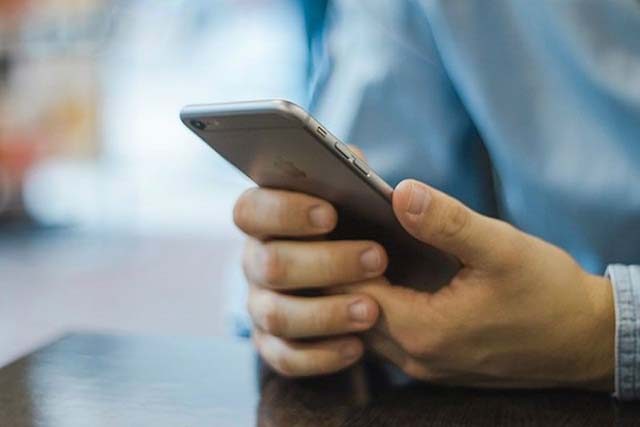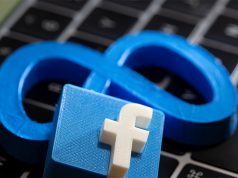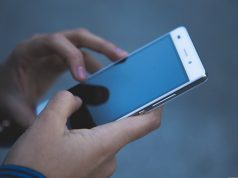Security concerns about Russian-based FaceApp resurfaced anew nearly a month after the emergence of clone or ghost accounts on Facebook.
FaceApp, released in 2017, is a mobile application that allows users to generate realistic transformations of their faces which became one of the most downloaded mobile applications across the world today.
It rose to popularity last year because of an online challenge via hashtags #faceappchallenge and #agechallenge, wherein the app was used to supposedly predict an individual’s aged appearance and share the result on Facebook and Twitter.
The app’s craze was further reinforced after local and international celebrities joined the challenge including the Jonas Brothers, Lebron James, Erwan Heussaff, Megan Young, Angel Locsin and Coco Martin, among others.
READ: Besides predicting your aged face, FaceApp may be doing something creepier
This week, the keyword “FaceApp” trended again on local Twitter with more than 30,000 tweets after online users including personalities and government officials used the app and shared their edited photos on social media.
The app’s gender-swapping features became the new highlight as users shared what they look like should they alter their sexual orientations.
Local officials who participated in the trend include Manila Mayor Isko Moreno, Kabataan Rep. Sarah Elago and Cabinet Secretary Karlo Nograles.
Hahahaha at least beautiful pa rin tayo lumabas hahahahaha hahahahaha 🤣🤣🤣 pic.twitter.com/txvTbetAr5
— Isko Moreno Domagoso (@IskoMoreno) June 18, 2020
SALAMAT PO SA MGA NAG-UULAT SA AKIN NG MGA FAKE ACCOUNTS, ALLEGATIONS 🤓😅 #FaceApp pic.twitter.com/AOYvM4yWun
— Sarah Elago (@sarahelago) June 17, 2020
Manang-mana kay daddy #FaceApp 😊 pic.twitter.com/1dCm0OkCq0
— Karlo Nograles (@karlo_nograles) June 19, 2020
The realistic, interesting and sometimes funny results of the tweaked images that FaceApp generates made it stand out in the market.
However, some Filipinos warned against the consequences of exposing their data to a mobile program.
One Facebook user noted that it was only weeks ago when the sudden emergence of clone or dummy accounts on the social media giant caused public alarm.
“We leaped from Facebook fake accounts scare to giving our data to FaceApp…in less than two weeks,” Facebook user Justine Balane said.
We leaped from Facebook fake accounts scare to giving our data to FaceApp… In less than 2 weeks.
Posted by Justine Balane on Wednesday, June 17, 2020
The country’s top universities, as well as civic organizations, and other personalities aired complaints against empty, fake accounts bearing other Filipinos’ usernames.
Facebook, however, has yet found proof that these accounts engaged in malicious and coordinated acts.
Photos are also personal data
Election lawyer Emil Marañon III also reminded his followers that photos are also personal data that they shouldn’t give away easily.
“Dear friends, don’t forget that your facial features are DATA. Just like passwords or addresses, you don’t just submit them to a random app even if in exchange for something really really cool,” he said.
Parody page Superficial Gazette suggested to the public to not use their own photos for the app.
“Fun aside, here’s a serious warning: stop using faceapp for your photos. FaceApp has full access to uploads, all photos on your camera roll, your location, and more. It is also owned by a Russian company,” they said.
To illustrate the use of other snapshots, they shared a collage of past presidents of the Philippines which were altered via FaceApp to look like women. The last photo was Chinese President Xi Jinping as a woman.
Dahil bumabalik ulit ang FaceApp, let's take a moment to imagine: What if all Philippine Presidents were women?We ran…
Posted by Superficial Gazette of the Republic of the Philippines on Wednesday, June 17, 2020
How dangerous is it?
FaceApp was developed at a startup company called Wireless Labs located in St. Petersburg, Russia in 2017.
The man behind it, Russian developer Yaroslav Goncharov, previously explained that he used a popular technology called the neural network or “the simplified analog of the human brain implemented in computer code” to develop the program.
Goncharov also took advantage of the internet population’s fondness for sharing photos when the app was born.
However, experts raised some issues with the app, particularly at its privacy policies. The main risks found are:
- Possibility of making your personal data such as location and username public
- Granting the company behind FaceApp consent to use your personal data without compensation
- Possibility of giving your personal data to intelligence thieves or hackers
Is it the most dangerous app?
Digital media website Mashable argued in an article that the security concerns thrown at FaceApp are not new.
“Essentially, all free apps hoover up a distressingly large amount of users’ personal data. Some definitely have better privacy policies than others, and there’s not always something nefarious going on, but getting shocked about FaceApp’s perceived transgressions misses the forest for the trees,” the article read.










